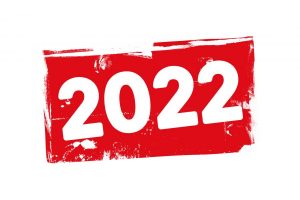What a year, 2021! A constant juggle of our work-life balance, decreasing and increasing levels of infections, changing (governmental) restrictions every few weeks, travel restrictions, postponed and cancelled team events, nights out, restaurant and theater visits. But also a year with a massive shift in our view of what we experience as meaningful. Since April 2021, more than 15 million people in the US have left their jobs in what’s being called the “great resignation”. Because they feel that their current work is not fulfilling, too demanding, so people start to look for another meaningful job. And more to follow is the prediction for 2022.
Resources are scarce and some are becoming even more scarce, not only human capital. The ‘old’ supply chain was a perfect example of just-in-time (JIT), no excess supplies, good forecast-ability and hardly any disruptions. Now there is a shortage of everything it seems, prices increase, inflation numbers are the highest in years, leaving families in difficult situations. And investors are looking for returns, some of them investing heavily in new technology and platforms like blockchains (bitcoin, NFT’s).
What is in store for 2022? Nobody really knows for sure, but we have some expectations on three areas that we would like to share with you:
– Company
– Labour
– Manufacturing

Instead of a company with a mission, a mission with a company seems a better fit for the future. Customers want sustainability, transparency and a decreased carbon footprint. The focus on ESG (Environment, Social, Governance) is a topic for many organisations to be taken seriously. Social pressure leaves companies no choice, but to follow the demand of their consumers. So start with a mission and organise your company around that mission.
The pool of skilled labour is already an issue, for many industries it is very difficult to find new employees for the open vacancies. And this gap will widen in the future years. In most countries in Europe, the labour force is declining in the coming years due to ageing population. Companies need to be flexible and adaptive in their renumeration and allow workers to work from home, have more flexibel working hours and can even work from a different continent. This also increases the pressure on automation (RPA, digitisation, data-fication, virtualisation) of work.
Manufacturing companies are rethinking their strategies. High dependency on one supplier, far away, has proven to be fragile. Bringing home (parts) of production is definitely a topic on many C-level agendas. Furthermore, a change in business model from B2B to B2C for specific industries is a hot topic. Decrease the number of stock points in your supply chain, increase the flexibility, the speed, and the value (information) you get from directly interacting with your end customer.
How does that impact our work in Business Transformations? First, the number of projects that will be initiated from a change in the strategic course of a company will increase. Resulting in a higher demand for experienced project managers that can support this transformation. Second, due to the nature of this work, a lot of (smaller) companies do not have the in-house skills and experience. Third, organisations do need to focus on activities that fit within the strategic direction. Additional resources needed for other activities can be hired on a temporary basis. And last, you want to hire experts who are independent, fast and deliver value for money. Here we can step in and support companies in their journey to the ‘dot on the horizon’.
Looking back at 2021, it was a challenging and surprising year, in many ways. No one could have predicted this two to three years ago. Looking forward, we see a lot of change coming our way. The old world, as we knew it, is history. We need to make this shift. And that need pushes great inventions our way. We’re glad we are part of that change and happy to support the Business Transformation for your organisation.










Great content! Keep up the good work!